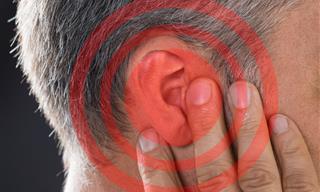Imagine drinking a glass of milk and having no idea it’s gone bad until you’re in the E.R. with food poisoning? Worse yet, imagine leaving the gas in your stove on, and not noticing until it’s too late?
Though not as obviously crucial as sight and hearing, our sense of scent is incredibly important, as it alerts us to potential hazards like those mentioned above as well as wild animals, smoke and more. Beyond that, much of our sense of flavor is actually derived from smelling (taste and pain are the other two senses informing our culinary experience).
Typically speaking, the loss of smell (called anosmia) is the result of nasal congestion and will pass with the cold or allergic response which caused it. However, there may be other factors causing anosmia, some of which quite severe.
The way our sense of scent works is that molecules in the air travel up our nose, about 3 inches behind the nostrils, where they stimulate our olfactory receptors, which then activate sensory neurons, nerve cells found at the roof of the nasal cavity. Damage to the nerves or physical obstacles in the nose that might inhibit this process may cause anosmia.
Beyond nasal congestion, possible causes for anosmia are:
1. Polyps
Benign, painless non-cancerous growths may obstruct the nasal cavity, stopping particles from reaching the olfactory system. Polyps might be caused by an inflammation of the nasal lining and can be treated with steroids or safely removed via surgery. They are rather common, and affect anywhere between 4-40% of the world's population.
2. Solvents
Long-term inhalation and exposure to solvents like nail polish and turpentine may cause a condition referred to as chronic painters’ syndrome, the symptoms of which include memory loss, loss of cognitive and psychomotor abilities, personality shifts and loss or impairment of color vision and smell.
3. Trauma
Head trauma, such as that caused by facial and skull fractures and concussions, as well as botched surgeries, might cause damage to the nasal cavity or olfactory nerves, causing anosmia. This type of damage might be temporary, lasting up to six months after the fact, or permanent.
4. Drugs
The snorting of drugs like cocaine and methamphetamines, as well as illicit recreational snorting of legal opioids, such as oxycodone, is done with the intent of achieving a more potent and fast-onset high. The resultant damage to the nasal cavity and nerves can cause anosmia, as well as a perforation of the septum (the barrier separating the nostrils).
5. Medicine
Decongestant nasal sprays (such as otrivine) may provide temporary relief to cold-related anosmia, but may trigger long-term loss of smell. Likewise, homeopathic nasal sprays which incorporate zinc may cause anosmia. Some oral medicine, such as nifedipine and aspirin (and other non-steroidal anti-inflammatory drugs) may also trigger anosmia.
6. Neurodegeneration
Diseases and medical conditions that target the nervous system, such as Parkinson’s, multiple sclerosis and Lewy body dementia (a variant of dementia characterized by abnormal protein bodies developing inside nerve cells) may hamper or cause complete loss of the sense of smell. In these cases, anosmia can be a warning sign of degenerative progression.
7. Radiotherapy

Source: National Cancer Institute (NCI)
Radiation treatment for cranial or neck cancer may cause anosmia as a side-effect. As unfortunate and unwanted as that may be, it should not be a factor in considering treatment for cancer.
8. Aging
Much like other senses and faculties, one possible symptom of old age can be a declining sense of smell. Among octogenarians, 60%-80% have experienced either partial loss of smell (hyposmia) or total anosmia.
In any case you find you sense of smell has been impaired inexplicably, tell a doctor. A family doctor should be able to diagnose or rule out inflammation or polyps, if those are causing your anosmia.
Treatment
In congestion-caused anosmia, the simplest treatment is taking decongestant drugs, though you should avoid nasal sprays (why? Read above). If the cold or rhinitis have passed and the anosmia still persists, tell a doctor.
If the cause of your anosmia is a polyp in your nasal passage, steroidal spray may shrink or eliminate the polyps. If ineffective, a surgery may be required to remove them and regain the sense of smell.
If your sense of smell is declining and you’re worried that a drug you’re taking might be the cause, consult with your doctor. Do not, however, stop taking prescribed medicine because of a hunch, before hearing a qualified professional's opinion.
Anosmia might be temporary or permanent. In cases where it is untreatable, as in anosmia caused by old age, you might want to make adjustments to your household and lifestyle. Take extra care when consuming perishable goods, read the expiration date and install smoke and gas leak detectors in your house.
 Go to BabaMail
Go to BabaMail


 Source:
Source:  Source:
Source: 



 Source: National Cancer Institute (NCI)
Source: National Cancer Institute (NCI)























